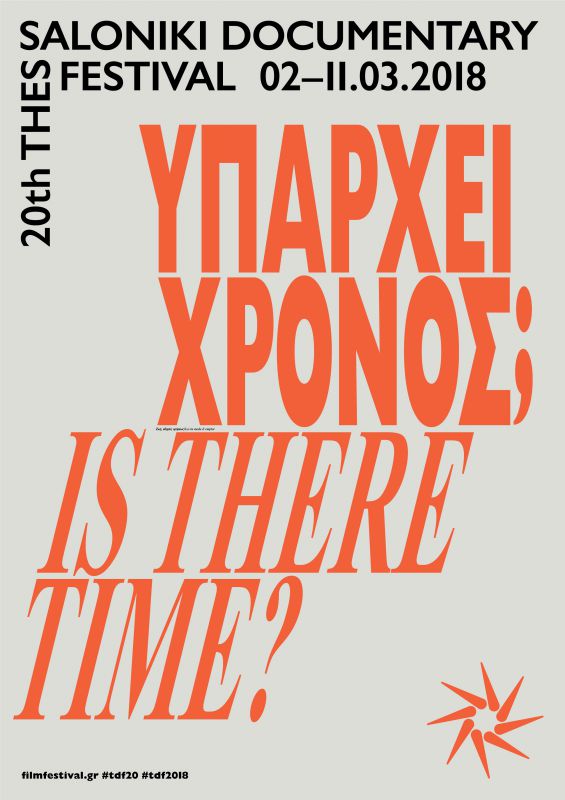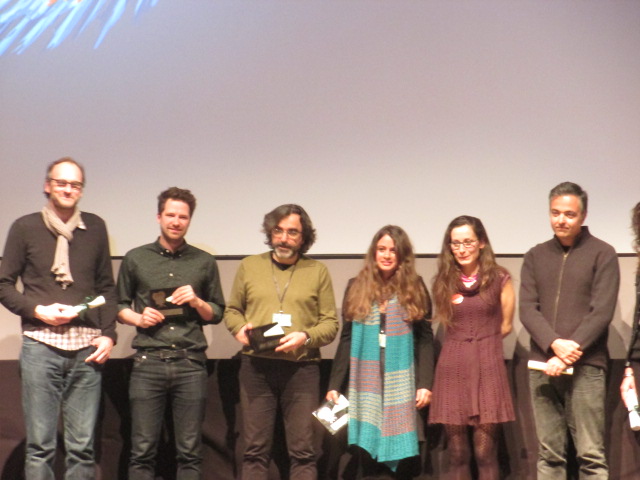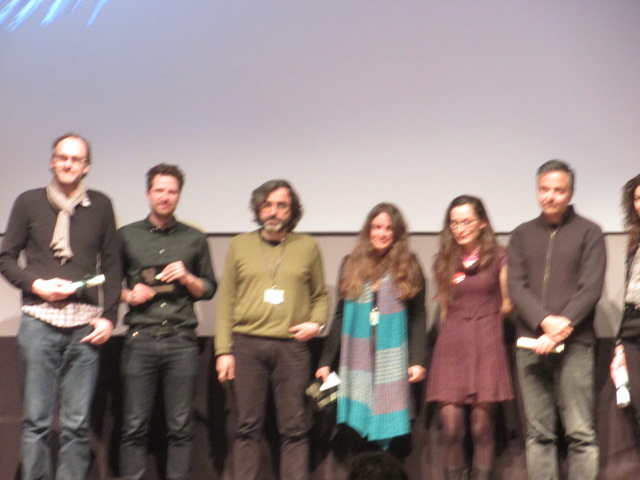|
|
||
|
Pro Tools
FILMFESTIVALS | 24/7 world wide coverageWelcome ! Enjoy the best of both worlds: Film & Festival News, exploring the best of the film festivals community. Launched in 1995, relentlessly connecting films to festivals, documenting and promoting festivals worldwide. Sorry for the interruption, we needed to correct and upgrade some modules. Working on a new website. For collaboration, editorial contributions, or publicity, please send us an email here. You need for put your full detail information if you want to be considered seriously. Thanks for understanding. User login |
TIFF DOC FEST 2011
13th TDF: Sergei Loznitsa masterclass (3/16/2011)
Ukrainian director Sergei Loznitsa delivered a unique and detailed masterclass that immersed the audience in his filmmaking world and methods, on Wednesday, March 16, 2011 at the John Cassavetes Theater, in the framework of the 13th TDF. The TDF is organizing a tribute to the awarded filmmaker, screening 11 of his documentaries. In his opening speech, TDF director Dimitris Eipides said: “I am happy and proud that Sergei Loznitsa is here to present his work; he is a unique filmmaker. I would like to thank him warmly for his presence at the Festival”. Programmer Dimitris Kerkinos, who coordinated the masterclass and organized the tribute, referred to the singular characteristics of the filmmaker’s work. “Sergei Loznitsa is constantly experimenting and
Loznitsa did not wish to present a masterclass in the form of a lecture and opted for an exciting analysis of his technique and of the structures of a documentary. The filmmaker studied applied mathematics and control systems at Kiev’s Polytechnic, and he has worked for the Institute of Cybernetics in the fields of control systems and artificial intelligence. In 1991 he had a change of heart and decided to study at the Russian State Cinema Institute in Moscow. “It was a time when everything was changing and I wanted to do something that would allow me to become part of the historic events unfolding. I was rejected twice by the Institute, but I finally made it. I studied for five years before starting to make my own films”, he said.
His thesis film Today We Are Building a House was his first documentary. “In my last year of study I decided to put a camera on my window; that’s how the film was made. I had no clear idea; I just wanted to record different angles and viewpoints. When you don’t know how to structure a film you just follow natural processes, you observe nature. Besides, I am deeply moved by the people living in rural Russia – a traditionally agricultural country- , which is currently in a deep decline, despite being the heart of Russian culture”, said the filmmaker.
After making several more documentaries, Loznitsa directed in 2010 his first fiction film, My Joy, which was much lauded at the Cannes Film Festival. He is now preparing his second fiction film, this time using actors and not everyday people as his protagonists. “Even in fiction films I look for energetic characters. Faces are very important, and also images, scenes, they all have their own energy”, he said. The trademarks of his films are observation, the expressive use of sound and the absence of commentary.
A film made by a student in 1967 gave the filmmaker the opportunity to talk about the value of editing and how important it is that the filmmaker pays equal attention to both image and sound. “A film is not always a narration produced by images. The narration itself can be superior to the images. This is what talent is: the filmmaker’s ability to reconstruct the environment according to his viewpoint. No environment is made to serve the filmmaker - he is obliged to destroy it and rebuild it. No school can teach you that. In time, everybody develops his own technique. My technique is to compare my initial feelings on my subject with the impression I have for the film at the time of editing “, he explained. Commenting on the importance of sound, he said that “sound can awake feelings; it can work as commentary or as an introduction of important elements such as irony”.
The filmmaker commented on a much-debated issue in the world of documentaries: how authentic is a documentary, given that the subject knows is being filmed? “I don’t believe in documenting in terms of the director – this is a mistake in my opinion – acting as a witness who testifies the facts. This view brings us to a very awkward position. Filmmakers can give the context, but it is the audience perceptions that matter the most”, he said.
Static scenes, repeated shots, additional sound that replaces the original are some of the elements Loznitsa uses in his work. He avoids television, since he thinks it is a medium with negative effects on viewers. “Television not only demands a fast pace, but creates other problems as well. For example it tries to reconcile the average person with dismembered corpses, as if it was something natural or routine», he explained. He is also very committed to cinematic techniques and to film, and has no intention of using other media like video. “I would never shoot a film on video. Videos lack the “dirtiness”, the mistakes,
Read more here: http://www.filmfestival.gr/default.aspx?lang=en-US&loc=1&&page=607&newsi... uploaded by Vanessa McMahon pics by Vanessa McMahon 17.03.2011 | Thessaloniki's blog Cat. : artificial intelligence Contact Details Dimitris Eipides Dimitris Kerkinos Director Documentary film energy Entertainment Entertainment Film http://www.filmfestival.gr/default.aspx?lang=en-US&loc=1& Institute of Cybernetics Kiev Masterclass Moscow My Joy My Joy Person Career Programmer Quotation Russian State Cinema Institute Sergei Loznitsa Sergei Loznitsa SERGEI LOZNITSA MASTERCLASS TDF the Cannes Film Festival Today We Are Building Today We Are Building a House Ukrainian culture Vanessa McMahon
|
LinksThe Bulletin Board > The Bulletin Board Blog Following News Interview with EFM (Berlin) Director
Interview with IFTA Chairman (AFM)
Interview with Cannes Marche du Film Director
Filmfestivals.com dailies live coverage from > Live from India
Useful links for the indies: > Big files transfer
+ SUBSCRIBE to the weekly Newsletter DealsUser imagesAbout Thessaloniki Mcmahon Vanessa Mcmahon Vanessa Vanessa McMahon Covered the 13th and 14th, and 16th edition. Through its tributes, it focuses both on discovering filmmakers with a unique cinematic point of view, and on the internationally recognized for their contribution to documentary. Contributions from Buno Chatelin http://tdf.filmfestival.gr/default.aspx?lang=en-US&loc=6&page=760 View my profile Send me a message My festivalThe EditorUser contributions |





























